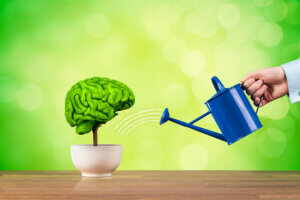How do we define successful aging?
Current articles define successful aging as a process based on three components: good health (low risk of disease), high mental and physical functioning, and active engagement in life (maintaining social connections and participating in meaningful activities). There are various daily actions that can promote these three components, but it is desirable that their integration into life is not random (“along the way”) but conscious and consistent. In other words, it is important to cultivate them as part of a routine in order to support successful aging. In this post, you will find several tips for integrating these three components into daily life in a way that creates optimal conditions for a positive experience even in the sixth decade of life, the seventh, and beyond.
Tips for Successful Aging
Firstly, humans are social beings. Studies have shown that the social environment plays a central role in our sense of happiness. This is true at any age, including the third age (and beyond). It is important to know that aging does not fundamentally change us: a person who was sociable at the age of 20 will still be sociable at the age of 80. However, the type of social relationships we form does change. In fact, our social circles tend to shrink over time. As young individuals, our starting point is to create many social connections, both broad and deep. Over time, we sacrifice quantity for quality, neglecting superficial relationships and investing in deeper ones. The ability to focus our mental energy on a limited number of quality relationships contributes to a high satisfaction with life even in older ages.
Secondly, just as in friendships, in other areas of life as well, people who have experienced a lot in life know how to “separate the wheat from the chaff” and invest their time in what truly matters to them. We enter the third age with all the life experience and knowledge we have accumulated thus far. This experience helps us “choose our battles” carefully and focus our mental energy on things that are meaningful to us. In fact, there is a precious and invaluable resource here: the ability to distinguish between essential and trivial matters. This allows us to set priorities and direct our efforts towards what truly matters.
Thirdly, older adults know that not only actions are important but also the attitude – the perspective through which we view the world. A positive outlook that sees the “glass half full” is a powerful tool that helps enhance our experiences and enjoyment of things. With retirement and a change in lifestyle, this attitude contributes greatly to navigating this complex transition and allows for continued growth in a positive and optimal way. Positive attitude, finding meaning, and enjoying life are central in the third age. This can be seen, for example, in the fact that many older adults choose to volunteer or develop new hobbies. These activities contribute to a sense of self-worth and give life new flavors and meanings, especially when they also benefit others.
Fourthly, in the spirit of the saying “my body is my temple,” take care of yourself: prioritize physical fitness and proper nutrition. Much has been said about how physical activity helps maintain physical and mental health. A healthy and balanced diet, tailored to your health needs, complements your physical needs and serves as a strong pillar for good health over time. Individuals who prioritize physical fitness and healthy eating help themselves stay healthy for a longer period and even recover faster. By the way, all of this is especially true if they also avoid smoking and excessive alcohol consumption. Not surprisingly, right?
Lastly, but not least, paying attention to mental activity will help keep your brain sharp. Research has found that nuns who maintained an active lifestyle (including learning and community engagement) reached advanced ages while preserving a sharp and clear mind. Indeed, we need challenges in order to thrive. Do not hesitate to mentally challenge yourself – whether it involves solving puzzles, reading, writing, engaging in lively discussions, or participating in cognitive training with computer games designed for this purpose. As human beings, there is no point at which we need to stop and cease developing. Our development is continuous, and there is always a taste for learning something new.
For further reading on thinking games for older adults >>
As can be seen, people can enjoy their lives at any age. The factors mentioned are important at all stages of life, but in the third and fourth ages, they can truly make a difference and turn the aging process into a more positive one.
The task of successful aging is to add life to years, not just years to life.



